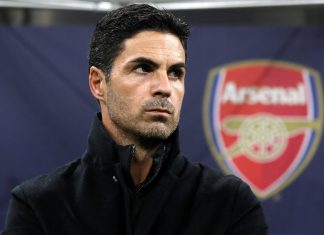The answer, like most good answers, is threefold. The first is the most obvious. Chelsea have massively underperformed this season, and in large part due to the waning powers of their powerful spine of John Terry, Frank Lampard and Didier Drogba.
Ramires was envisaged as a potential replacement for Lampard when he came to the club in the summer, and in many ways is the most important of the three big signings Chelsea have made this season. Lampard has been the most consistent player in the Premier League in the last decade, and possesses a level of stamina the majority of professionals could only dream of. Lampard is exceptionally hard working and durable, but also technically gifted, intelligent and creative, as well as being the scorer of numerous vital goals. To replace him is to replace a one-off, an impossible task. Chelsea may not realise this yet, but his importance to their success cannot be underestimated.
Luiz and Torres are the replacements long term for Terry and Drogba, similarly important players for Chelsea, but arguably easier to replace than Lampard. The spending reflects Roman Abramovich’s belief that the spine of Chelsea’s team that has served them so well cannot be recreated via transition, but must be replaced immediately and before the expiry date arrives to end Terry and Drogba’s careers.
The second reason is the failure of the youth system. Whilst Josh McEachran has earned plaudits for his impressive play for the club this season, their other young talents have failed to establish themselves in the Chelsea team. Abramovich envisaged a world class youth system that produced players of the highest quality, with one top class player brought in each season to the club’s first team. It was to raise Chelsea’s youth system to the level of Arsenal and Manchester United, with the Russian’s admiration of Barcelona underlining his thinking.
The mistake Chelsea made was that they do not have a particular identity or style. There is a ‘Barcelona way’, a ’Manchester United way’ or an ‘Arsenal way’. The reason players can come through to these teams as youngsters and make an immediate impact is because they have a style honed and defined and obsessively and meticulously practised over years in youth systems which prepares the players for life in the first team. Barcelona’s youngsters are taught to receive the ball, pass it and move into space to offer an option for the man in possession. Players are taught to fit into the team. No-one really knows what Chelsea’s style is, or what their system is meant to be. There is a distinct lack of an identity in which to steep youngsters. The truly great of those coming through will make it, like McEachran, but many wasted talents who would perform in the Arsenal or Manchester United teams will be wasted at Chelsea.
The third reason for Chelsea’s renewed spending spree is that Abramovich fears the price of failure. Recently he commissioned research to identify the financial impact on the club of failure to qualify for the Champions League. Given Chelsea’s perpetual annual losses and their reliance on Champions League revenue, the Russian decided to make a bold gamble on signing Luiz and Torres in an attempt to reinforce the side’s position in the Premier League’s top four. The price of failure would be too great to pay, and so the risk was taken to spend large sums on two players to preserve this precious status. It could work, or it could spell the end of Roman’s empire at Chelsea. It is a notable feature of most great empires in history in decline that one last bold gamble was taken before their eventual collapse. Napoleon decided that he would take on Britain. The Austro-Hungarian empire were willing with pressure from Germany to provoke the First World War in a desperate attempt to keep their land intact. It could be that the signing of Torres and Luiz mark Abramovich’s ‘Waterloo’ moment, and the end of a fairytale decade of success for the West Londoners.







